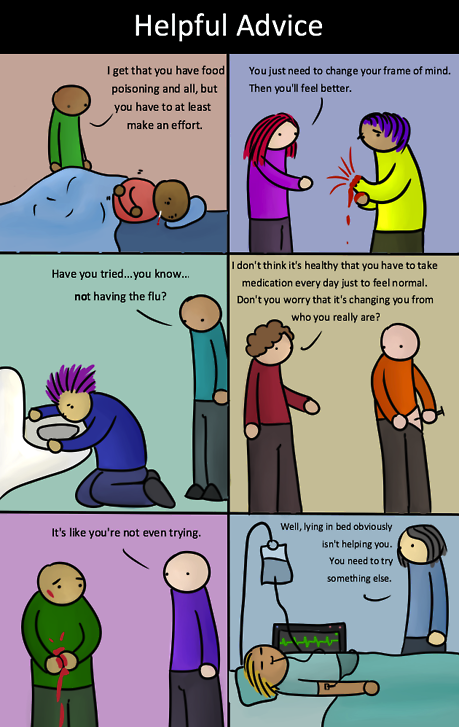Study: Depression Now Diagnosable Through Simple Blood Test

By:
Depression, which affects an estimated 350 million people worldwide, can now be diagnosed through a blood test, neuroscientists at Northwestern University have found.
RELATED: Sarah Silverman Just Perfectly Described What Depression Feels Like
Eva Redei, a neuroscientist at Northwestern University, explains in a new Inside Science video that she and her team found signs in blood that can change how people are diagnosed with depression. In fact, they have identified a "panel of markers that have different levels in patients with depression."
How depression is diagnosed in the U.S.
Depression is often diagnosed subjectively, through a doctor and patient discussion. These findings could change that and take the guessing game out of the picture. The blood work tests levels of nine RNA blood markers, which appear different for people with depression.
A study with a small sample size revealed that these marker levels shifted following 18 weeks of cognitive behavior or talk therapy, so the blood test is not only helpful in determining who has depression, but how best to treat it. Redei believes the test could help ease the stigma surrounding depression and mental illness because it eliminates subjectivity and instead offers up the blood work results as proof of the condition.
"[With this test], the patient will know with the security that they do or do not have depression," Redei says.
RELATED: This Comic Perfectly Explains Why Anxiety and Depression Are so Difficult to Fight
Redei says that more than 1 in 10 people live with depression but that at least half are not diagnosed. She added that primary care doctors do not always diagnose their patients with depression because diagnosis is "basically a conversation" and series of questions and answers between the doctor and patient, a process that can be highly subjective and flawed.
"We also know that primary care doctors only diagnose about 50 percent of them correctly," she says.
Depression and mental illness in America
 kathclick - bigstockphoto.com
kathclick - bigstockphoto.com
This change could be very beneficial for the millions of people out there suffering from depression, especially if they have not been formally diagnosed with the mental illness. Comedian Sarah Silverman recently gave a powerful interview with "Fresh Air's" Terry Gross, revealing that she was 14 when she started taking medication for depression, which she describes as a "chemical change."
"I can only speak from my own experience, and I would say that the depression I experienced feels like a chemical change," Silverman said. "When it came over me, when it comes over me, it feels like it's coming over me like a flu. You ever just sit ... and you're fine and the next moment you just go, 'Oh, Jesus, I have the flu.'"
Silverman's recognition of depression as a "chemical change" is significant because nearly 20 percent of adults in our country suffer from mental illness, yet many people still have a flawed understanding of how it works. It's easy to doubt the struggles of people struggling with depression or say that their troubles are all in their head, but the Robot Hugs comic below highlights just how bad this advice is by imagining a world in which we treat physical illnesses like we treat mental illnesses.
RELATED: How You Should Talk About Mental Health
 Robot Hugs - robot-hugs.com
Robot Hugs - robot-hugs.com
Breaking down the stigma
 Andy Katz - bigstockphoto.com
Andy Katz - bigstockphoto.com
Singer Demi Lovato, who suffers from bipolar disorder, told People magazine in a recent interview that it's time for our culture to treat mental illness the way we treat physical illness.
"I think it's important that people no longer look at mental illness as something taboo to talk about. It's something that's extremely common, one in five adults has a mental illness, so basically everyone is essentially connected to this problem and this epidemic. The problem with mental illness is people don't look at it as a physical illness. When you think about it, the brain is actually the most complex organ in your body. We need to treat it like a physical illness and take it seriously."
Editor's Note: This article has been updated to remove a reference to a 2013 study that was published prior to the release of the most recent DSM.
